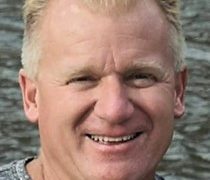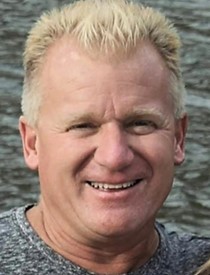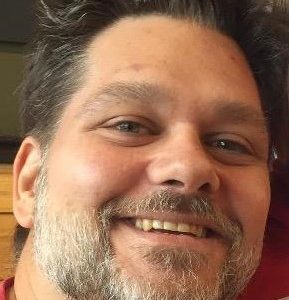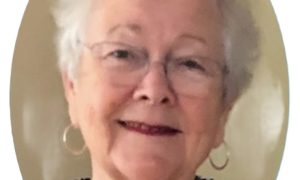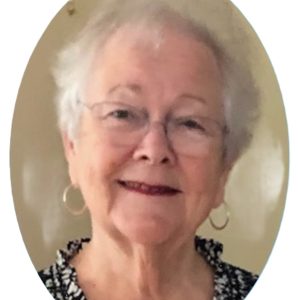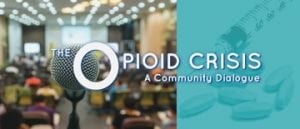
WGBY’s “The Opioid Crisis: A Community Dialogue,” which aired live May 11, has been nominated for an Emmy Award.
SPRINGFIELD — Sometimes getting involved in the community is its own reward; other times, it earns an Emmy Award nomination to boot.
When then interim General Manager Lynn Page helped conceive of The Opioid Crisis: A Community Dialogue special, award nominations were the farthest thing from her mind. Instead, she was focused on fostering a healing and idea-generating moment within the western New England community around the growing concern of opioid addiction and misuse.
“We wanted the station to get involved,” Page recalls. “The opioid crisis continues to devastate our communities, and we knew we had the unique ability to bring a range of stakeholders together for a fruitful discussion about the serious health issues surrounding painkillers and narcotics. Local public television serves as a conduit for information and conversation.”
Her team’s work has since been recognized by the National Academy of Television Arts & Sciences (NATAS) Boston/New England Chapter, which has nominated The Opioid Crisis: A Community Dialogue for a regional 2018 Emmy Award in the category of “Health/Science Program or Special.” The special’s Executive Producer Tony Dunne and host/producer Carrie Saldo were both named in the nomination.
UNIQUE LIVE FORMAT WITH SOCIAL MEDIA INPUT
Moderated by then Berkshire Eagle reporter Saldo (now host of WGBY’s weekday public affairs series Connecting Point), The Opioid Crisis: A Community Dialogue was developed in partnership with the Center for Human Development (CHD) and featured a panel of western New England locals, including:
- Robert Roose, Providence Health Systems
- Hampden County District Attorney Anthony Gulluni
- Chantal Silloway, Adolescent Recovery Program Director, Goodwin House
- Danyel Zerella, Mother in Addiction Recovery
- Jennifer Kimball, BRPC Manager Public Health Program
- Liz Whynott, Tapestry Health, Needle Exchange Program
With a town hall-style discussion, the special program was broadcast live from the WGBY studio in Springfield. Panelists fielded questions and comments from in-person audience members as well as Twitter and Facebook users via the hashtag #wgbydialogue.
“Anything can happen with live television,” Dunne says. “We were fielding social media comments, managing audience questions, balancing panelist time. It was a lot to juggle. But we knew were doing this for the benefit of our community, covering a topic — opioid addiction — that continues to plague our region and places all across the country.”
Saldo agrees, adding “Our hope was to bring people together to better understand not only the challenges of abusing these drugs, but also to discuss potential solutions to this problem. It’s an honor that NATAS recognized that goal and appreciates our effort.”
CONTINUED THREAT OF OPIOID MISUSE
Partnering with WGBY on The Opioid Crisis: A Community Dialogue project was the Center for Human Development (CHD), one of the largest social service organizations in Western Massachusetts.
According to the CHD Chief Operating Officer Lois Nesci, her organization was eager to work on the project.
“As a leading provider of programming to assist those in recovery with maintaining sobriety, CHD is proud to have partnered with WGBY in order to bring such a critical topic to a large viewing audience,” Nesci says. “The opioid epidemic, regardless of age, ethnicity, gender or socio-economic class has impacted thousands of families. WGBY’s willingness to highlight the personal struggles of those affected while introducing community supports and services to help is yet another example of the station’s commitment to the health and wellbeing of our community and all who call this region home.”
Indeed, more than 1,400 Massachusetts residents died in 2016 due to opioid-related overdose (non-suicide), according to the Mass. Dept. of Public Health. Moreover, a recent U.S. Dept. of Health and Human Services report found Massachusetts to have the highest number of opioid-related emergency room visits among the 50 states.
These daunting numbers have led to the Massachusetts Legislature and Governor Charlie Baker to enact “An Act Relative to Substance Use, Treatment, Education, and Prevention.” They have also inspired efforts like the Opioid Taskforce, which aims to reduce opioid addiction and overdose deaths in Franklin County and the North Quabbin Region of Massachusetts.
WGBY remains committed to fostering discussions about these and other health-related issues. Its series, Connecting Point, maintains an online collection of health and fitness related segments for anytime viewing.


